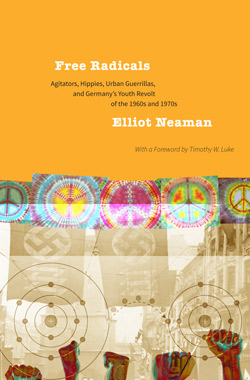By Peter Brandt · Wednesday, April 28, 2021 This is a more extensive version of an essay by Peter Brandt that appeared in Neue Gesellschaft/Frankfurter Hefte in March 2021. Brandt comments on identity politics here. Translated by Russell A. Berman, with comments here.
In the wake of the Black Lives Matter movement in the United States and the United Kingdom, growing numbers of statues of historical figures have been toppled, beheaded, or turned upside down. It has been a matter primarily of figures charged with participation in the extermination, oppression, and enslavement of non-white ethnic groups, such as the famous generals of the Confederacy during the American Civil War of 1861–65. The matter gets complicated because not a few of these targets of symbolic attacks or executions embody quite different qualities. Several of the American founding fathers, the first constitutional state, were slaveowners, for example, the primary author of the Declaration of Independence of 1776 and later third president of the United States, Thomas Jefferson, a figure of the Enlightenment and a wide-ranging intellectual. Although never a rigorous defender of slavery, he viewed blacks—in contrast to Native Americans—as inferior.
Continue reading →
By Klaus Boldt · Monday, April 12, 2021 
The following interview appeared in the Welt am Sonntag. This translation is published here with permission. Wolfgang Reitzle is one of Germany’s leading business executives. Translated by Russell A. Berman, with comments here.
Welt am Sonntag: Mr. Reitzle, the corona crisis robbed many Germans of their illusions about this republic. They don’t recognize their country anymore. They used to think of it as progressive, organized, digitalized, and well led. Was that image of modern Germany just a fantasy?
Wolfgang Reitzle: There have been plenty of signs of a discrepancy in Germany between appearance and reality: despite a defense budget of 47 billion euros, our guns can’t shoot, our tanks can’t roll, and our airplanes can’t fly—this doesn’t seem to bother anyone here, but other countries have taken notice. Our inability to build an airport for our capital city astonished the world.
Continue reading →
By Russell A. Berman · Monday, April 12, 2021 Wolfgang Reitzle is one of Germany’s premiere business executives, and Klaus Boldt, part of the editorial leadership of Die Welt, one of the foremost business journalists. The wide-ranging interview here points to the multiple dimensions of the problems facing Germany at the end of the Angela Merkel era. The general elections in late September are sure to lead to a new coalition government in Berlin—and a new chancellor—who will face all the problems that Reitzle diagnoses, with the possible exception of the pandemic, hopefully over by the fall, even in Europe. While the coronavirus’s economic, social, and political consequences are however sure to linger on, it figures here primarily as an example of massive government failure and the toxic mixture of bureaucracy, ideology, and incompetence that Reitzle denounces and that leads him to call Berlin “a failed state.”
Those are harsh words from a prominent leader of the German business community, especially when one recalls how in the U.S. political discussion in recent years Germany has been repeatedly held up as the better alternative to the Trump administration. Not long ago the myth of Angela Merkel as the new leader of the free world circulated through the press. That once-glowing imagery has now vanished in the face of the catastrophes of the German and the EU corona response, and the prospect of continued slow economic growth, fraying infrastructure, and insufficient support for technological innovation in the country where one would least expect it. Reitzle helps us understand why.
Continue reading →
By Telos Press · Monday, November 7, 2016  “There were actually at least two countercultures in 1968. The street mutineers dreamed of a political revolution, which was acted out as theater, using old scripts. In the second, politics became personal; emancipation came in the form of consumer choices. The first was collectivist and failed, the second was libertarian, individualistic, futuristic, and carried the day. In the United States Stewart Brand, the visionary who founded The Whole Earth Catalog in 1968, pithily described the difference as between ‘Berkeley and Stanford’: ‘Around Berkeley, it was Free Speech Movement, “power to the people.” . . .’ In Germany this kind of technology-as-revolution mindset was much more difficult to launch, given the entrenched romantic aversion to technology in the counterculture. . .” “There were actually at least two countercultures in 1968. The street mutineers dreamed of a political revolution, which was acted out as theater, using old scripts. In the second, politics became personal; emancipation came in the form of consumer choices. The first was collectivist and failed, the second was libertarian, individualistic, futuristic, and carried the day. In the United States Stewart Brand, the visionary who founded The Whole Earth Catalog in 1968, pithily described the difference as between ‘Berkeley and Stanford’: ‘Around Berkeley, it was Free Speech Movement, “power to the people.” . . .’ In Germany this kind of technology-as-revolution mindset was much more difficult to launch, given the entrenched romantic aversion to technology in the counterculture. . .”
Continue reading →
|
|









